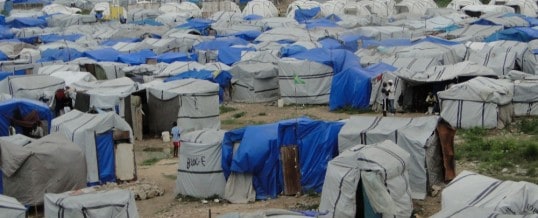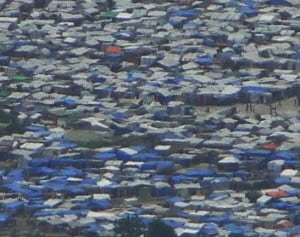
Adequate Shelters do not include tents are adequate shelter.
There was a time when tents served as adequate shelter: in the past.
The problem I have is failing to understand how, in this modern age, we can have so many people who do not have adequate shelter in our world. With new technology and material, vast global distribution networks, large numbers of available resources (workers) in developing countries, and trillion dollar economies we haven’t been able to figure out how to get millions or rather hundreds of millions of people (o.k, billions) sheltered in an adequate structure.
The United Nations (U.N.) has defined what inadequate shelter is, and more can be learned by visiting the UN-HABITAT website. They further state that adequate shelter is a right under article 25 of the Universal Declaration and further reinforce this right with the Millennium Development Goals. The ground work for these resolutions has been in the making since the 1980’s yet by their own facts and figures 1.4 billion people are now living in inadequate shelters and over 500 million have no shelter at all.
So what is wrong? Well, the truth is many things: politics, money, war, disasters, property rights, and more each play a role in a person’s ability to acquire adequate shelter. However, I have another problem not often spoken about. People who are caught in the encumbrances of disaster and conflict often receive shelter from the U.N., Government Agencies like USAID, and large NGO’s like the International Federation of the Red Cross and Red Crescent (IFRC); but have you seen what gets passed out? People caught in unfortunate and often desperate situations are given blue plastic tarps and tents which can hardly be considered adequate shelter beyond a few short months.
You may ask what is wrong with that and offer what appears to be a valid argument; we can’t afford to just give these folks a new house. I counter that it is not as cut and dry as that. You see, I believe these things (tents) have a place for a very short term time period. But let’s face it; it takes decades to reconstruct cities and countries. Just look at New Orleans as an example. In the most developed country in the world, it will take a decade or more before she is back to a size and shape she was in before the hurricane landed upon her. Now, if it takes a decade in the United States to reconstruct adequate shelter, how much longer in a developing country. The real answer is many decades and sometimes never.
Desperate Living without adequate shelter.
So in effect by delivering tents we subjugate the recipient to decades of desperate living conditions without adequate shelter. Further to this, the tents only last a short time at best so they need to be re-issued or worse yet, when not re-issued people are left exposed and vulnerable for a long time.
The costs then mount, the logistics of redistribution of humanitarian goods and services continues, health deteriorates, education suffers, and the downward spiral effectively cripples a group of people. And this cost does reach you; after all, you pay taxes and some of the taxes go toward disaster relief internationally and we pay dues to the United Nations.
So there has to be a better way and that way is to deliver a core infrastructure housing module. Not an entire house but a sturdy module that can be delivered at the time of a disaster and serve as a simple shelter but built upon by the recipient as the people in an area recover from the disaster.
What this does is stops the process of throwing money at programs for decades while trying to recover from a disaster. People have a decent, sturdy, warm, protected shelter very shortly after the disaster in which they can begin to recover and add to the unit as time and money allow. And if they are never able to build upon the unit then they have at lease received a simple shelter and are not left un-sheltered for decades.
a decent, sturdy, warm, protected shelter very shortly after the disaster in which they can begin to recover and add to the unit as time and money allow. And if they are never able to build upon the unit then they have at lease received a simple shelter and are not left un-sheltered for decades.
It appears to me that this is an ideal solution to eliminate tents as a solution for disaster relief. Further, it is in line with the U.N.’s stated resolutions proclaiming adequate shelter for all. I would sure like to think we could do a much better job of providing a decent place to stay after a disaster and our work at Shelter The World is committed to working with communities and groups to initiate these improvements.
Remember: Tents are not adequate shelter
ShareAUG
2011

About the Author:
I'm looking to make a difference in the lives of people living in extreme poverty and those living in inadequate living conditions. I've seen the conditions in both extreme poverty and disasters and believe we can do a better job of helping out; especially babies, children, and families. We are blessed to live in America, and this is my time to give back! Won't you join me?